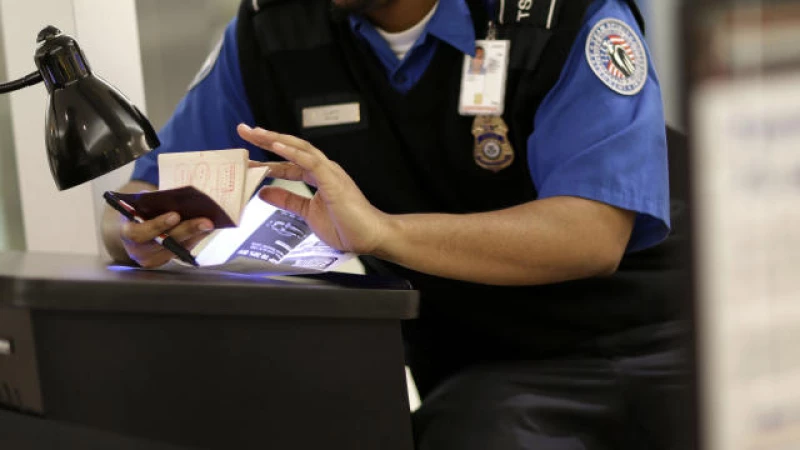Watch the CBS Reports documentary "The Watchlist: 20 Years of Tracking Suspected Terrorists" in the video player above.
The U.S. government's terrorist watchlist has nearly doubled in size in just six years, a recent investigation has revealed.
An extensive analysis of various sources, including court records, government documents, and interviews with numerous intelligence community leaders, has shown that the consolidated database of individuals has not only been quietly expanding in number but also in its scope of targets.
The figures speak for themselves. When it was initially launched on Dec. 1, 2003, the consolidated watchlist — now referred to as the Terrorist Screening Dataset — contained approximately 120,000 individuals. By 2017, the most recent publicly confirmed numbers, it had grown nearly tenfold to include 1,160,000 individuals. Now, at the end of 2023, the Terrorist Screening Dataset encompasses the names of around 2 million people that the government considers known or suspected terrorists, including thousands of Americans, according to the investigation.
"It doesn't necessarily mean they are terrorists," cautioned Russ Travers, a veteran of the U.S. intelligence community for four decades who played a role in creating the watchlist. "It simply means that there is something that has prompted a department or agency to believe, 'This person requires closer scrutiny.'"
Government Watchlist Contains 2 Million Individuals
A government policy requires agents to have "reasonable suspicion" before adding someone to the watchlist. However, the specific criteria for suspicion are undisclosed, and the government refuses to confirm or deny an individual's presence on the list.
Monte Hawkins, a member of the National Security Council and an overseer of watchlisting policy for President Biden, asserts that the 2 million people on the watchlist are there for valid reasons. He points out that the majority of those listed are not U.S. citizens or legal permanent residents.
National security officials admit that there may be individuals in the consolidated terrorist database who should be removed, but insufficient staff prevents regular audits of each person's file.
"I'm sure that there are a lot of people that are in the database that are dead, that we don't even know it," said Travers.
American Gangs Targeted in Second Watchlist
In addition to the main watchlist, an interagency group oversees a second list that focuses on American gangs with international connections. The Transnational Organized Crime Actor Detection Program contains approximately 40,000 individuals, according to a recent audit obtained by CBS News.
Consequences of Being on a Watchlist
Being on a watchlist can have significant consequences on people's lives. In countless civil lawsuits over the past 20 years, people have described how they believe the watchlist caused them to be stopped from flying home after a vacation, to fail a background check to get jobs, or to have their phones and computers searched. Others said it triggered law enforcement to handcuff them at gunpoint, or that they were detained and interrogated by foreign intelligence services.
The TSA redress department director stated in late 2006 that over the preceding year alone, the names of approximately 30,000 airline passengers were mistakenly matched with those appearing on federal watchlists.
Someone who believes they've been wrongfully impacted by the watchlist can file a complaint with the Department of Homeland Security requesting redress. However, this is unlikely to help those who are on the watchlist, whether they're innocent or not. In one case, it took a Stanford PhD student fighting a nine-year court battle to prove that she was wrongfully listed; the FBI finally admitted she was watchlisted by mistake because an agent had accidentally checked a wrong box.
The FBI recently updated its criteria for adding individuals to the watchlist, requiring more identifying information. If sufficient information is not provided, individuals won't be listed, and those already on the list may be removed if their files are deemed too thin under the new standard. The collection of biometrics, particularly faces and fingerprints, is also being prioritized to reduce cases of mistaken identity, according to officials.
U.S. national security assessments for 2023 and 2024 indicate that both foreign and domestic terrorism threats are increasing. The government views the watchlist as an essential component of its "early warning system," according to intelligence community insiders.
However, civil liberties advocates and former counterterrorism insiders have expressed concerns about the expansion of the watchlist. They highlight government abuses, errors, and a lack of accountability over the past two decades since its inception.
"People might think that the watchlisting system is a remnant of 9/11. It is not," said Hina Shamsi, National Security Project director at the American Civil Liberties Union. "This is a system that has only expanded."
A number of federal lawsuits allege that FBI agents have violated policy by adding innocent people to the database to coerce them into becoming informants. Critics argue that efforts at accountability have been hindered by a culture of secrecy and a lack of transparency, issues that the Biden administration acknowledges.
"We are listening to you, we are taking action. … We're not heartless bureaucrats who simply want to create a massive watchlist," stated Hawkins. "There is currently an initiative within the White House, the Domestic Policy Council, and the National Security Council to address these concerns and explore ways to either enhance the redress process or increase transparency with the public."
Government officials did not provide a specific timeline for the implementation of reforms, but confirmed that they are currently "in progress."







